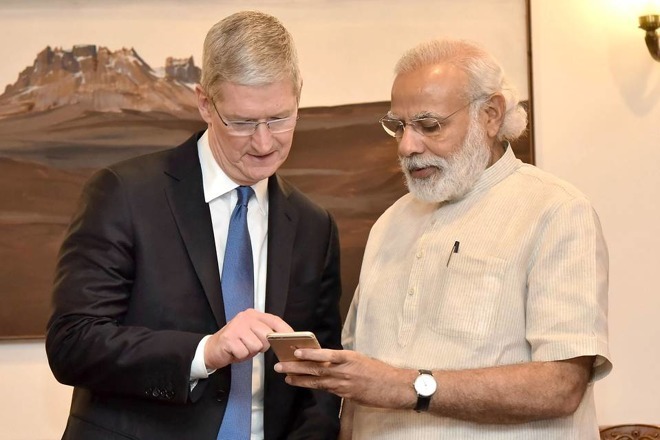Following revelations that Apple's India chief Sanjay Kaul has stepped down, a report on Tuesday claims the company is replacing the executive with another country head formerly in charge of South Asia operations.
Citing sources familiar with the matter, the Khaleej Times reports Apple has appointed Michel Coulomb as its new head of sales in India.
According to his LinkedIn profile, Coulomb quickly moved up the ranks at Apple following his departure from Kodak in 2003, where he worked as a marketing director. At Apple, the executive spent two years as an international account manager, then four years as a sales director in France before becoming director of retail for Europe, Middle East, India & Africa.
In 2012, Coulomb was promoted to Managing Director, Middle East, Turkey, Africa, a position he held for nearly four years. Currently, the executive lists himself as Managing Director South Asia.
Coulomb supposedly replaces Kaul, who according to reports on Monday stepped down from his post after a year and half on the job. Kaul's resignation comes amid sluggish sales in the burgeoning region.
Apple has yet to officially confirm Kaul's departure and Coulomb's subsequent transfer.
Despite growing popularity in other developing countries, namely China, Apple owns less than three percent of the smartphone market in India. Due to socioeconomic factors, customers in the region commonly buy cheaper Android handsets made by Samsung, Chinese firms or local producers.
In a bid to goose adoption, Apple has attempted to lower device pricing by keeping outdated models on store shelves, introducing lower-spec versions of existing hardware and, in the case of iPhone SE, assembling phones in-country. For example, Apple brought a 32GB iPhone 6 variant to market in March for $435.
India's strict import policies compound Apple's pricing problems. Regulations state companies selling certain goods in the country, like electronics, must meet a local sourcing quota of 30 percent.
To sidestep import laws and garner tax breaks, Apple is working with manufacturing partner Wistron to produce iPhone SE models at a plant in Karnataka. The assembler is reportedly eyeing an expansion that could involve the production of a next-generation "iPhone SE 2" device.
Beyond manufacturing, Apple is looking to open brick-and-mortar stores in India, a move that would replace the company's current sales scheme which involves third-party resellers. Sourcing standards are still a hurdle, but government officials are considering exemptions that would allow Apple to sell its wares through single brand — first-party —
stores.
Apple views India as an important cog in its global sales apparatus going forward. During the company's most recent quarterly investors conference call in November, CEO Tim Cook said there was "great momentum" in India, where revenue doubled on a year-over-year basis. He tempered expectations, however, adding that Apple is still "gaining understanding" of the fickle market.
 Mikey Campbell
Mikey Campbell


 William Gallagher
William Gallagher
 Malcolm Owen
Malcolm Owen

 Amber Neely
Amber Neely
 Oliver Haslam
Oliver Haslam
 Thomas Sibilly
Thomas Sibilly
 Marko Zivkovic
Marko Zivkovic



-m.jpg)






There are no Comments Here, Yet
Be "First!" to Reply on Our Forums ->